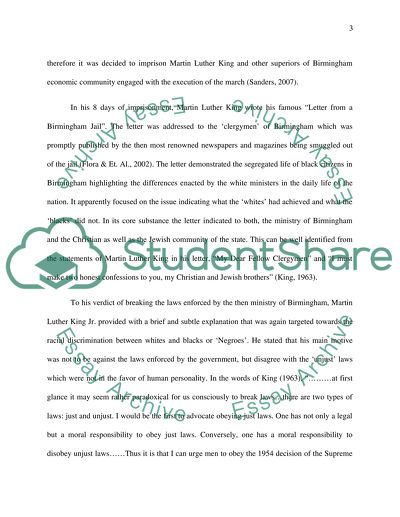Cite this document
(“Martin Luther King's Letter from a Birmingham Jail Research Paper”, n.d.)
Retrieved from https://studentshare.org/history/1426459-martin-luther-kings-letter-from-a-birmingham-jail
Retrieved from https://studentshare.org/history/1426459-martin-luther-kings-letter-from-a-birmingham-jail
(Martin Luther King'S Letter from a Birmingham Jail Research Paper)
https://studentshare.org/history/1426459-martin-luther-kings-letter-from-a-birmingham-jail.
https://studentshare.org/history/1426459-martin-luther-kings-letter-from-a-birmingham-jail.
“Martin Luther King'S Letter from a Birmingham Jail Research Paper”, n.d. https://studentshare.org/history/1426459-martin-luther-kings-letter-from-a-birmingham-jail.


